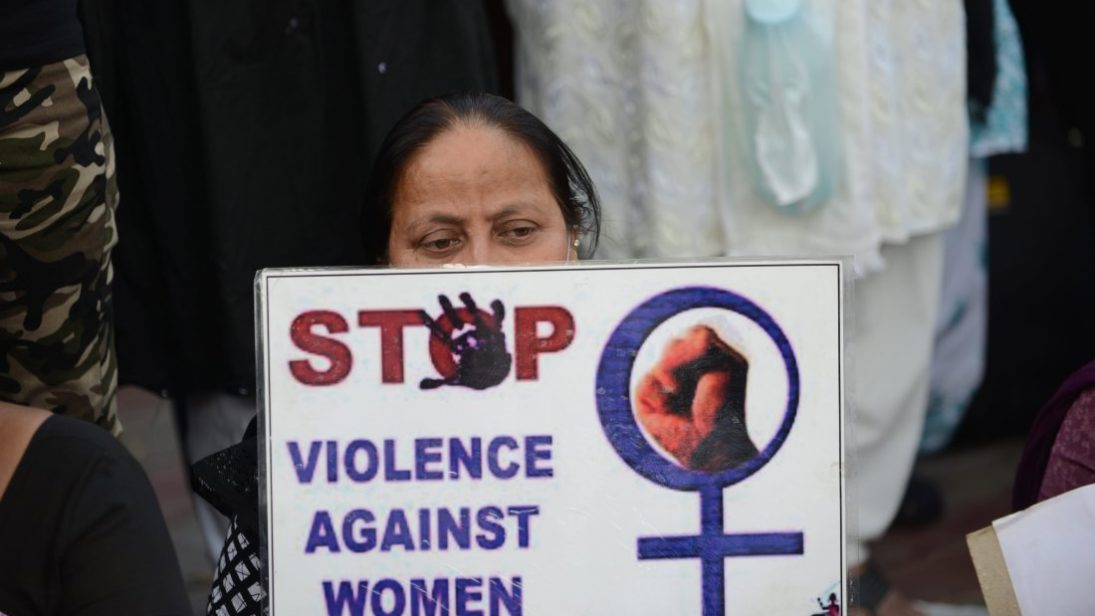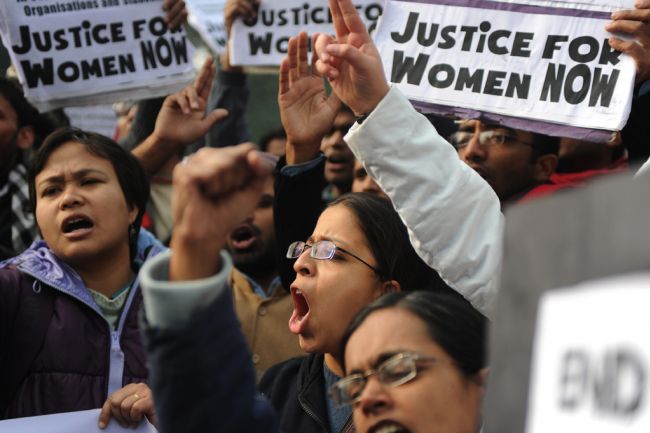
Talking about women’s rights and sexual harassment has never been easy in South Asia, and the recent controversy in India highlights this fact. Last Thursday morning (evening in India and Pakistan), Leslee Udwin’s documentary on the Jyoti Singh (Nirbhaya) rape case – India’s Daughter – went viral on the Internet, as the BBC released the film on YouTube. The airing of the film has been blocked in India by a Delhi court on grounds of the case’s being sub judice and for fear that the content of film (particularly the interview with one of the convicts, Mukesh) could “create law and order problems” for the country.
Nonetheless, many Internet-savvy Indians and non-Indians have by now watched the film and are reacting to it: “horrific, appalling, sick” are some of the responses from outraged audiences. Caught in the volley of should-be-banned and should-not-be-banned, India’s Daughter brings back the debate on rape culture and human security, particularly women’s security.
The aftermath of 16 December 2012 in India was a social upheaval. The topic of rape – a hitherto victim-shaming taboo topic – was brought into public discourse like never before, as one of the interviewees in the documentary points out. While on one hand Indian society seems to be on the cusp of serious self-introspection, heinous rapes and other violent crimes against women continue unabated.
A society with desperate forces of resistance to change needs a constant reminder that the revolution is to be an ongoing one – and not just a fleeting moment in our recent history. While it is certainly true that the case remains sub judice, to accuse the documentary of inciting public anger is to miss the point entirely. It was public outrage that led to the urgent setting up of the Justice Verma Committee whose report re-scripted rape and sexual assault-related laws in India. In preparation for the Committee’s report, suggestions poured in from all corners of Indian civil society, including women’s rights movements, students, and intellectuals. We can recall the 2011 anti-corruption movement in India and the “common man’s” victory in the 2015 Delhi elections were emotion-based responses and a sign of progress, after all.
So why not get emotional about this? Has any change come devoid of emotion, let alone social change? This exact attitude – asking not to get emotional while calling for justice – has helped rape culture and violence against women to flourish in many societies around the world, including in India and in Pakistan.
Does the documentary provide a platform for the convict to tell his side of the story? To Mukesh it would have appeared so (perhaps this being the reason why he agreed to give the interview in the first place). Even then, India’s Daughter does not make a case for the convicts. The documentary is about the lives of those who lived the horrible incident in December 2012 and its aftermath – Jyoti, Jyoti’s parents Badri Singh and Asha Singh, the convicts Mukesh and others – the documentary gives the world a chance to see how they and the public reacted. What India’s Daughter does is show us the abhorrent anti-women attitudes of power-assertive men. We see these men, robed in lawyer’s cloaks, the alleged vanguards of justice, intellectualize a virulent sexist and violent perspective towards women. The statements of the convict and the defence lawyers are a slap in the face of a civilized society. Udwin’s documentary makes that slap keenly felt.
This is not India’s problem alone. In the wake of high-profile rape cases in Pakistan, there are the inevitable voices defending the rapists and shaming the victims. Honour killings abound, with little political consensus willing to tackle the gross narrative that allows for violence to continue. In a way, our societies have become textbook examples of rape culture. From the very beginning, as Jyoti’s mother points out in the documentary, whole neighborhoods rejoice at the birth of a son – it is curious when families do so for a girl. For large swaths of Pakistan and India, even today, education is meant for the son and the daughter’s role is in the home, in the kitchen, caring for the family – anything outside of this is improper. A girl shouldn’t be outside her home with friends – if she is, the apologists say, the rape is her own fault, a consequence of her immorality. It is this perverse idea that masquerades as intellect that is our biggest challenge to overcome.
Jyoti’s case resonated with people across the subcontinent because of who she was – a symbol of a progressing nation. She came from a poor family, but because of access to education and opportunities, coupled with her loyalty to family and remarkable work ethic, was able to chart a career path for herself. India and Pakistan’s economic progress has allowed more people the chance to pursue their dreams, and they are doing so in droves. Young people are moving to the cities, pursuing higher education, and enjoying recreational activities such as going with friends to a movie. Jyoti’s story could have been anyone’s story. Any one of us could have been Jyoti.
Rapes have happened since, and will continue to unless this narrative that oppresses women is successfully challenged. In our homes and neighborhoods, in our schools and universities, in our temples and mosques, the idea of equality must be underscored. We all have this responsibility, leadership in particular. The authors of this piece feel strongly about matters of national security from their vantage points of Islamabad and New Delhi, and agree that certainly no one is secure when our populations are under such daily threats.
South Asia will not progress until all its people are given due protection and opportunity. To do that requires engaging in conversations, not condemning important documentaries that raise vital questions about our culture.
***
Image 1: Sam Panthaky-AFP, Getty
Image 2: Sajjad Hussain-AFP, Getty

